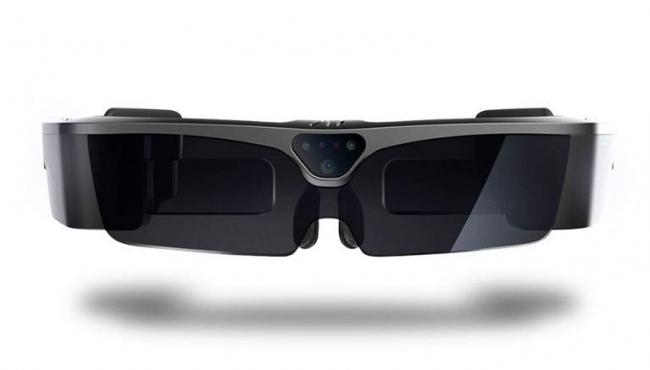Chinese AR Glasses Marker ‘HiScene’ Has Closed a $17.5 Million in Series B+ Round
Chinese augmented reality glasses maker HiScene has secured $17.5 million in Series B+ round according to a statement on the company’s website. Participating in this funding round included investors such as Ondine Capital, MYEG Capital, Chuangtu Capital and the tech-focused Junsan Capital.

The startup was founded in 2012 and operates from Shanghai with branches in Silicon Valley, Shenzhen, Beijing, Kunming and Guangzhou. The company’s operations focus on the research and development of core augmented reality technologies and products. The startup is also known as Liangfengtai and currently has ownership of multiple researched and developed core artificial intelligence technologies covering areas such as deep learning and intelligence interaction, computer vision, integrated software, and hardware.
The total funding round brings the company’s entire Series B funding commitments so far to $32.24 million. The money will be directed towards helping the company with the commercialization of its products and services as well as in its global expansion strategy.
HiScene has also been cooperating with some of the leading Chinese carriers since 2017 in the commercialization of 5G networks and augmented reality. While virtual reality is seeing a slower pace of growth, augmented reality is currently experiencing a kind of mini boom and is widely being adopted in education, healthcare as well as at the enterprise-level in various types of industries.
Last month, HiScene partnered with Huawei and a China Telecom subsidiary to put together an AR communication system that made it possible to perform a long-distance diagnosis and treatment for a patient suffering from chronic pain in legs.
A doctor in Shanghai wearing HiScene’s HiAR G200 smart glasses was able to communicate with a colleague based in the small Chinese city of Zunyi and send transactions on how to treat the patient via the HiScene augmented reality communication platform known as HiLeia. The parties were able to perform a smooth augmented reality remote medical assistance without any latency issues.

However, the company has not cited any other instances when its AR system was used in other medical applications but the service is likely to grow rapidly, particularly in the western regions of China where medical services and training still lag behind the rest of the country, particularly behind the fast-paced eastern provinces.
Many leading tech players are looking to augmented reality as the next frontier in computing after the mobile era. With its participation in the latest funding round, Malaysia’s MyEG Capital will be making its third investment in a Chinese startup. Previously, the Malaysian venture capital firm invested in the Guangzhou-based augmented reality developer Ximmerse and the edtech startup Jingle Magic.
The latest funding brings total China-based funding in computer vision technologies and augmented reality to $3.9 billion in 2018. By 2025, augmented reality is expected to drive $1.6 billion in annual retail.
This is not the only Chinese company that is making the waves in the augmented reality industry. Two months ago, Chinese ecommerce giant Alibaba acquired the Israeli augmented reality startup, Infinity Augmented Reality whose technology can transform smart glasses into powerful content augmentation platforms.
https://virtualrealitytimes.com/2019/05/10/chinese-ar-glasses-marker-hiscene-has-closed-a-17-5-million-in-series-b-round/https://virtualrealitytimes.com/wp-content/uploads/2019/05/HiScene-Smart-Glasses-600x244.jpghttps://virtualrealitytimes.com/wp-content/uploads/2019/05/HiScene-Smart-Glasses-150x90.jpgAugmented RealityTechnologyChinese augmented reality glasses maker HiScene has secured $17.5 million in Series B+ round according to a statement on the company’s website. Participating in this funding round included investors such as Ondine Capital, MYEG Capital, Chuangtu Capital and the tech-focused Junsan Capital. The startup was founded in 2012 and operates...Sam OchanjiSam Ochanji[email protected]EditorVirtual Reality Times - Metaverse & VR
